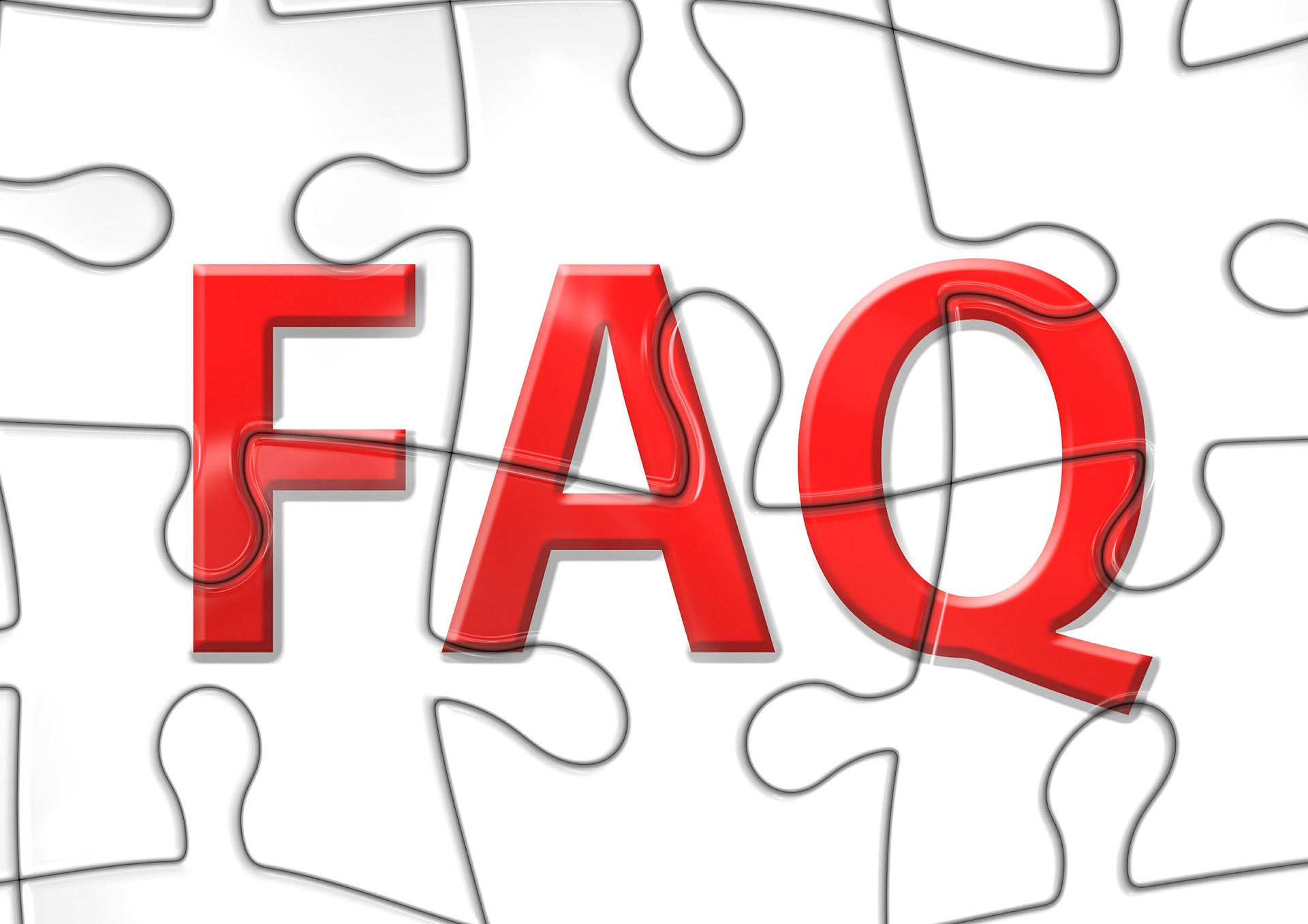Frequently Asked Questions

Donation Basics
-
What is organ and tissue donation?
Organ and tissue donation is the process of recovering organs and tissues from a deceased person and transplanting them into others in order to save or enhance the lives of those in need. Up to eight lives can be saved through organ donation, and another 75+ lives may be improved through tissue donation.
-
How many people need donated organs and tissue?
There are approximately more than 1,800 local residents and approximately 115,000 people in the U.S. waiting for organ transplants (www.unos.org). Each year, approximately 7,000 people die waiting for an organ transplant that would have given them a second chance at life with their families. In addition, each year hundreds of thousands of people benefit from donated tissue that is used for life-saving and reconstructive purposes.
-
What organs and tissues may be donated?
The most commonly transplanted organs are the kidneys, liver, heart, lungs, pancreas and small intestines. As for tissues:
- Heart valves are used to replace defective valves; this is particularly life-saving for babies and small children because of the small number of pediatric hearts available for transplant
- Corneas can restore sight to the blind
- Skin is used as a temporary dressing for burns, serious abrasions and other exposed areas
- Bone is used in orthopedic surgery to facilitate healing of fractures or prevent amputation, particularly for cancer and trauma patients
- Tendons are used to repair torn ligaments on knees or other joints
- Veins are used in cardiac by-pass surgery, particularly where the patient cannot provide his or her own veins
The Donation Process
-
Who is responsible for managing the organ donation process?
The District of Columbia is part of the service area of Washington Regional Transplant Community, the federally designated, non-profit organ procurement organizations(OPO). WRTC is exclusively responsible for facilitating the donation process, and only the OPO’s authorized staff have access to both the donor and recipient medical information which makes accurate matching possible. Organ recovery and allocation is regulated by the Centers for Medicare and Medicaid Services, a division of the U.S. Department of Health & Human Services.
-
How do you determine who receives the organs?
Organs are allocated nationally based on a complex medical formula that is established by transplant doctors, public representatives, ethicists, and organ recovery agencies. UNOS (the United Network for Organ Sharing at www.unos.org) maintains the list of patients waiting for a transplant. A donor's blood type, tissue type, body weight, and size are matched against patients on the list. If there are multiple matches, priority is given to the sickest patients or, in the case of kidneys, those who have been on the waiting list the longest. Factors such as race, gender, age, income or celebrity status are never considered when determining who receives an organ.
-
How can my organs and tissues be used for research?
Organs and tissues that are not recovered for transplant may be recovered by the local organ procurement organization (OPO) for pre-approved medical research if the donor (or family, in lieu of a registry record) authorizes such. All research projects are carefully evaluated by each OPO, and only those projects that offer clear medical benefit and are administered by experienced, reputable organizations are approved.
-
What if I don’t want my organs and/or tissues to be used for research?
Donated organs and tissues may be used for two purposes: transplantation and medical research. The Donate Life DC registry allows you to opt out of donating organs and/or tissues for research.
During the sign up process, check off the “Donation Limitations” box and check the “For Research” box under both Organs and Tissues.
If you have already signed up online or via the DMV, you may go to the registry website, click on Update My Donor Profile, enter your login information, then specify donation limitations. While updating your profile you may also change your password and personal information or remove your name from the Donate Life DC registry.
-
Can I specify which organs and tissues I donate?
By checking the “Donation Limitations” box on the sign up page, the subsequent page allows you to opt out of donating specific organs and/or tissues or donating for medical research. In addition, you can specify that your donated tissue must be used for life-saving or reconstructive purposes only, distributed only to non-profit organizations, or distributed only in the United States.
-
Can organs be given to people of a different racial group or gender?
In most cases, race and gender are not factors. However, organ size (which can be affected by gender) is critical to match a donor heart, lung or liver with a recipient. Genetic makeup can be a factor when matching a kidney or pancreas donor and recipient, because of the importance of tissue matching in those two organs. Optimal tissue matching can happen often within the same racial and genetic background. For example, an individual of Asian descent may match better with a kidney donated from another Asian versus a different race. However, cross-racial donations can and do happen with great success when matches are available.
-
If a family member is in need of an organ at the time of my death, can I specify that he or she is to receive it?
So-called “directed donation” of an organ to a specific individual is legal, but it must be done at the time of donation. (Organs may not be directed to a group of individuals.) Directed donation is best supported by an advance directive or may be granted by next of kin at the time of donation.
Signing Up
-
Who can sign up on the Donate Life D.C. Registry?
The Donate Life D.C. registry allows District of Columbia residents who are at least 18 years of age to register their authorization to donate all or specific organs and tissues upon their death. Children between the ages of 13 and 17 can join the Donate Life D.C. registry, but until the designated donor is 18 years old, parents or a legal guardian will make the final decision about organ and tissue donation at the appropriate time.
-
Can my family override my decision to donate?
Once you sign up with the Donate Life D.C. registry, your donor designation grants authorization for organ and tissue recovery. Should you be in the position to donate, your next of kin will be presented with documentation of your registration but will not have the power to override your decision. It is important to tell your next of kin or healthcare power of attorney of your wishes so that they may be prepared to cooperate with the health care team about your medical history.
-
Why register? Isn’t it enough to have a heart on my driver license?
If you have a donor designation on your D.C. driver’s license, that information will be securely stored in the Donate Life D.C. registry. It is recommended that all residents check the registry to make sure that the information is correct and up-to-date.
A donor designation on your D.C. driver’s license does grant authorization for organ and/or tissue recovery, but due to the suddenness and emotion surrounding the circumstances, the license may rarely be available at the time a family is approached regarding donation.
With the Donate Life D.C. registry, your desire to donate is stored in a secure, confidential database. Should your death result in the opportunity for you to be a donor, an official record of your donor designation will be readily available and cannot be overturned by your family. Thus, should you be medically suitable to donate, your wishes will be respected and your family will be relieved of the burden of making a decision on your behalf.
-
Does my age, pre-existing medical condition, or sexual orientation prevent me from being a donor?
Do not rule yourself out. The fact that you want to be a donor is something to be celebrated, and we encourage you to register your decision with pride. Age, most medical conditions or sexual orientation do not exclude you from being a suitable organ and tissue donor. (In fact, there have recently s been a 93-year-old kidney donor, and 83-year-old liver donor and a 99-year-old cornea donor!) There are very few automatic rule-outs, and due to medical advancements, even some of these may change over time. In the event you are in a position to be an actual donor, medical specialists will evaluate your medical history to determine your suitability to donate. If you wish to be a donor, sign up!
-
Can I sign up my children?
Due to federal privacy laws prohibiting the collection of personal information for individuals under age 13, the Donate Life D.C. registry is unable to accept registrations for children 12 and under. Until registrants and non-registrants alike are 18 years old, their parents (or legal guardians) will make the final decision about organ and tissue donation at the appropriate time. Your wish to make that decision for your children should be shared with your family.
-
How do you ensure that someone does not sign up another person without his or her knowledge or consent?
Of the 45+ state donor registries now in operation, to date there have been no reported problems with persons registering people other than themselves. The authenticity of the registrant can be determined using the date/time of the registration, personal information requested during the signup process and the confirmation email address if used. Family members are also consulted at the time of donation and will be able to verify the donor’s information at that time.
-
Does the registry allow me to sign up to be a marrow or living organ donor?
We are pleased to include on the registry links to information about blood, marrow and living kidney donation here but this is a registration for deceased donation wishes only.
-
Does my registration grant consent for whole body donation?
Signing up with Donate Life D.C. does not grant permission for your body to be donated to medical schools. Organ and tissue donation for transplant or research is not the same as willed body donation. Willed whole body programs are usually associated with teaching hospitals at major universities, and arrangements must be made in advance directly with the institutions. Please note: should you choose to consent to whole body donation, you will be unable to donate your organs or tissues for transplant.
-
I have an advance directive authorizing donation of my organs. Should I also register with the Donate Life DC registry, or will the advance directive be enough?
Due to the rapid and emotional nature of events surrounding sudden death, often times families do not have time to check legal documents prior to being approached about donation. However, since the Donate Life D.C. registry is viewed in all potential donation cases prior to approaching the family, recovery personnel are able to share proof of registration with family members at the time donation is discussed with them.
Each state has its own laws regarding consent for organ donation. Some states have registries while others rely on donor cards or advance directives. If consent is not given through either of these means, all states defer to next-of-kin to make the donation decision on behalf of their loved one.
-
I have a friend serving as my health care proxy, with a signed power of attorney. Can that person authorize donation for me?
Yes. The holder of a health care power of attorney may make donation decisions. However, if you are registered on Donate Life DC, that registration is a first person authorization, and your proxy will be presented with that information at the appropriate time. It is best to discuss all your end of life decisions with your proxy at the time you sign the power of attorney.
-
Is it possible to restrict my donation from specific groups?
Federal law does not allow you to restrict your donation to or from specific classes of individuals. By checking the “Donation Limitations” box on the first signup page, the subsequent page allows you to opt out of donating specific organs and/or tissues or having your organs and/or tissues donated for research.
-
How do people in other states sign up? Is there a national registry?
All matters concerning organ and tissue donation are under the jurisdiction of each state’s respective laws. On Donate Life D.C. you are shown the option of going to the Virginia registry www.donatelifevirginia.org/ or to the Maryland registry www.donatelifemaryland.org/ or to www.registerme.org our National Registry.
-
What if I don’t have an email account or access to a computer?
If you do not have an email account, you can get a free email account by visiting www.hotmail.com or you may also use the email address of a relative. If you do not have access to your own computer, you may sign up at your neighborhood library. If you do not have an email account, you will not receive a confirmation that you have signed up on the registry.
-
I don’t want to sign up online. Is there any other way to register?
In addition to online registrations, you may sign up with the Donate Life D.C. registry when you apply for or renew your driver license or ID card through the District of Columbia Department of Motor Vehicles (DMV).
If you are unable to sign up online or via the DMV, you may sign up via paper registration at one of our local health fairs and/or Donate Life D.C. events. We encourage you to share your decision with your next of kin or health care proxy.
Management of the Registry
-
Who is responsible for administering the registry?
The Donate Life Washington, D.C. registry is authorized by the District of Columbia (pursuant to the Organ and Tissue Donor Registry Act of 2006) and operated by Washington Regional Transplant Community, this area’s federally-designated, non-profit organ procurement organization (OPO) that serves the District under authorization from the U.S. Department of Heath & Human Services and the Centers for Medicare and Medicaid Services (CMS).
-
What is the registry’s relationship to the District of Columbia’s Department of Motor Vehicles (DMV)?
The DMV’s driver license, ID card application and renewal forms include the question: "Do you wish to be an organ and tissue donor?" Checking YES on the form automatically enrolls the applicant in the Donate Life Washington, D.C. registry, and the red heart will be pre-printed on the applicant’s driver license or ID card.
-
How can I be sure my information is kept confidential?
As a state-authorized public service, Donate Life Washington, D.C. adheres to the strictest and most up-to-date guidelines to keep all personal information confidential. Aside from standard information such as name and address, the only sensitive information we require is place of birth, while mother’s maiden name and driver’s license number are optional. Why collect this information? Because it is absolutely vital that we identify individual registrants with 100% certainty if they should ever be in a position to be an actual organ, eye or tissue donor. We would never want to confuse a patient who is not registered with someone who is.
We assure you that every technical precaution is in place to protect the information from identity thieves. Of the 45+ state donor registries now in operation, there are no reported problems with unauthorized access to personal information.












